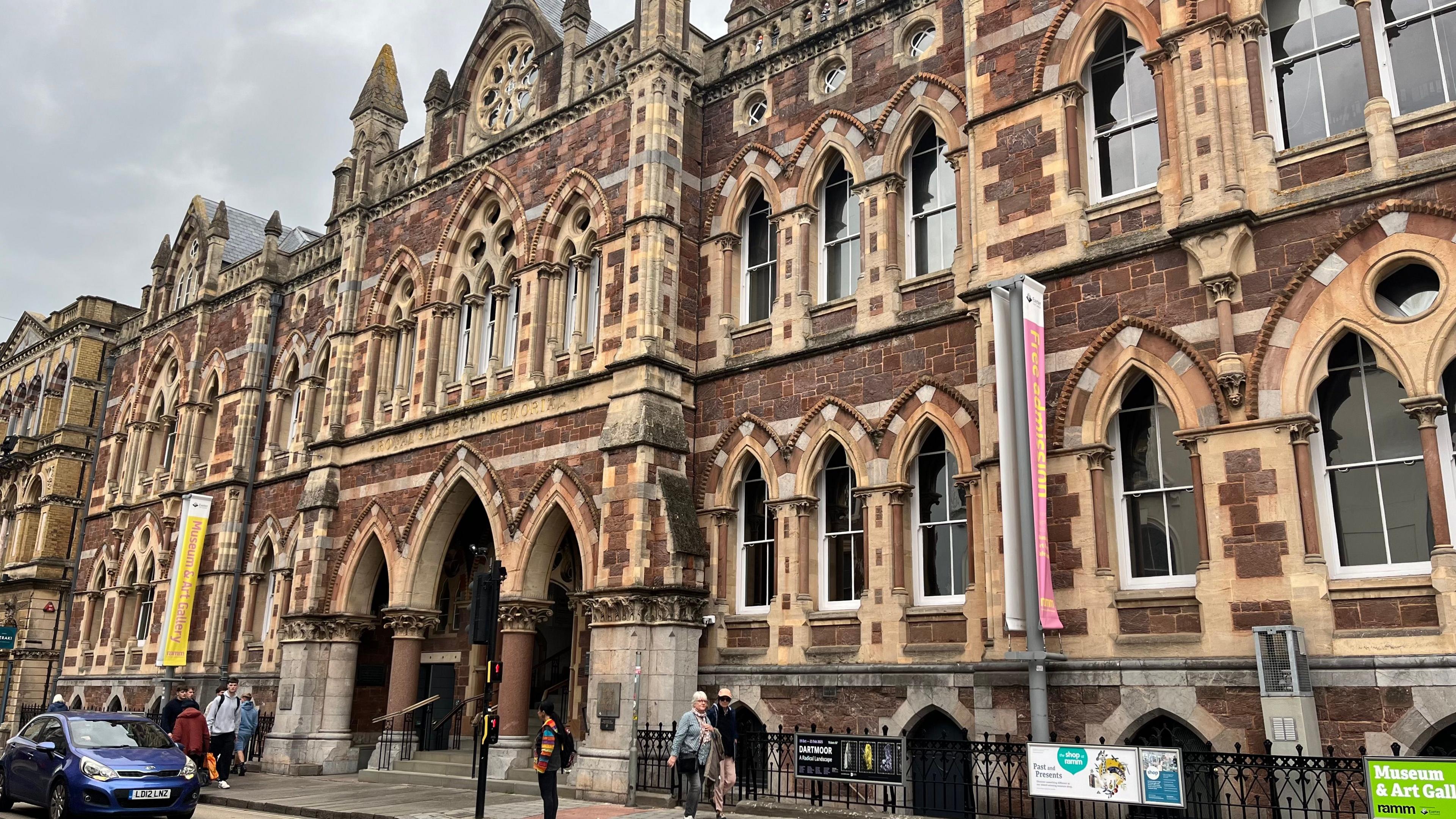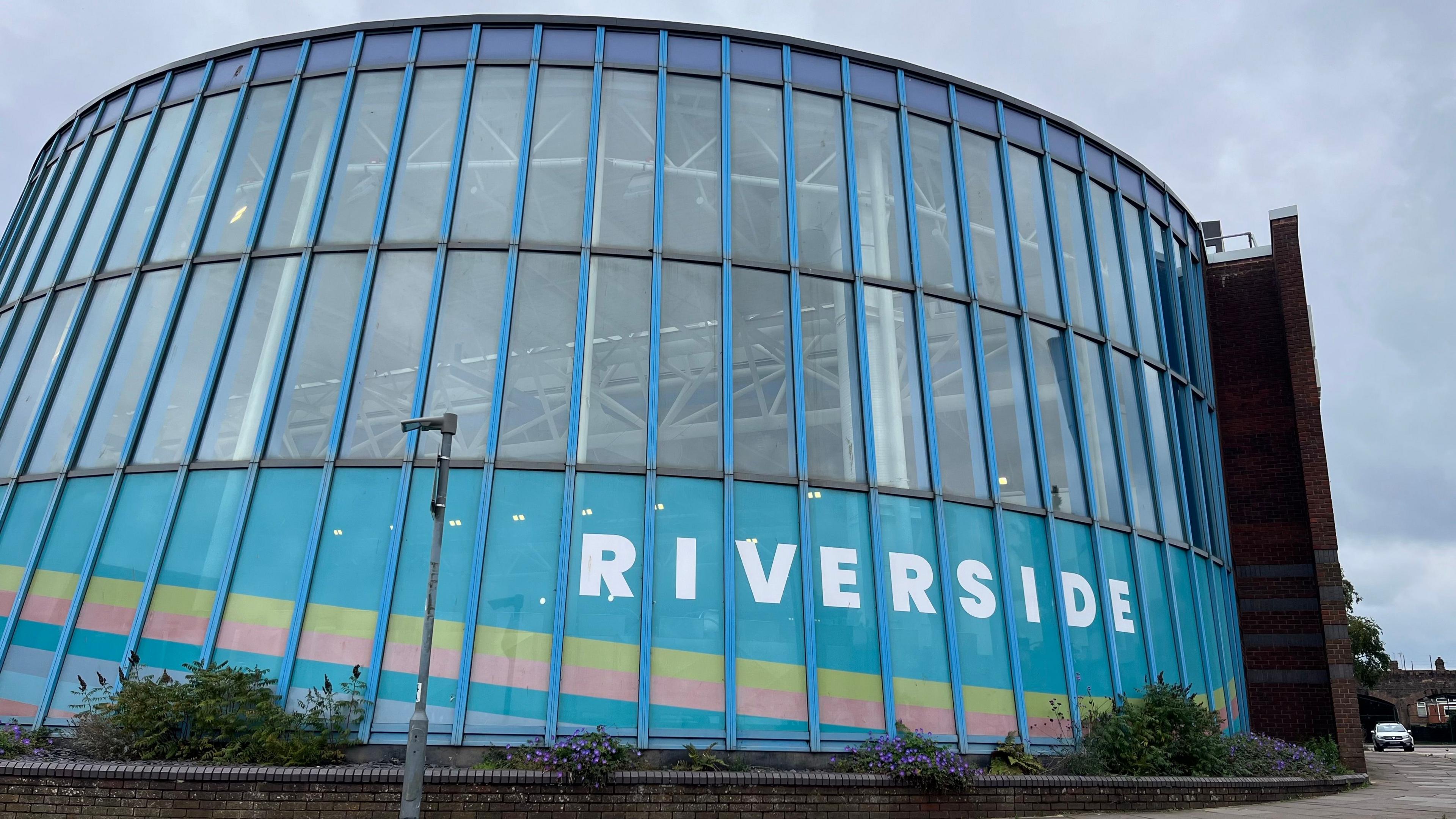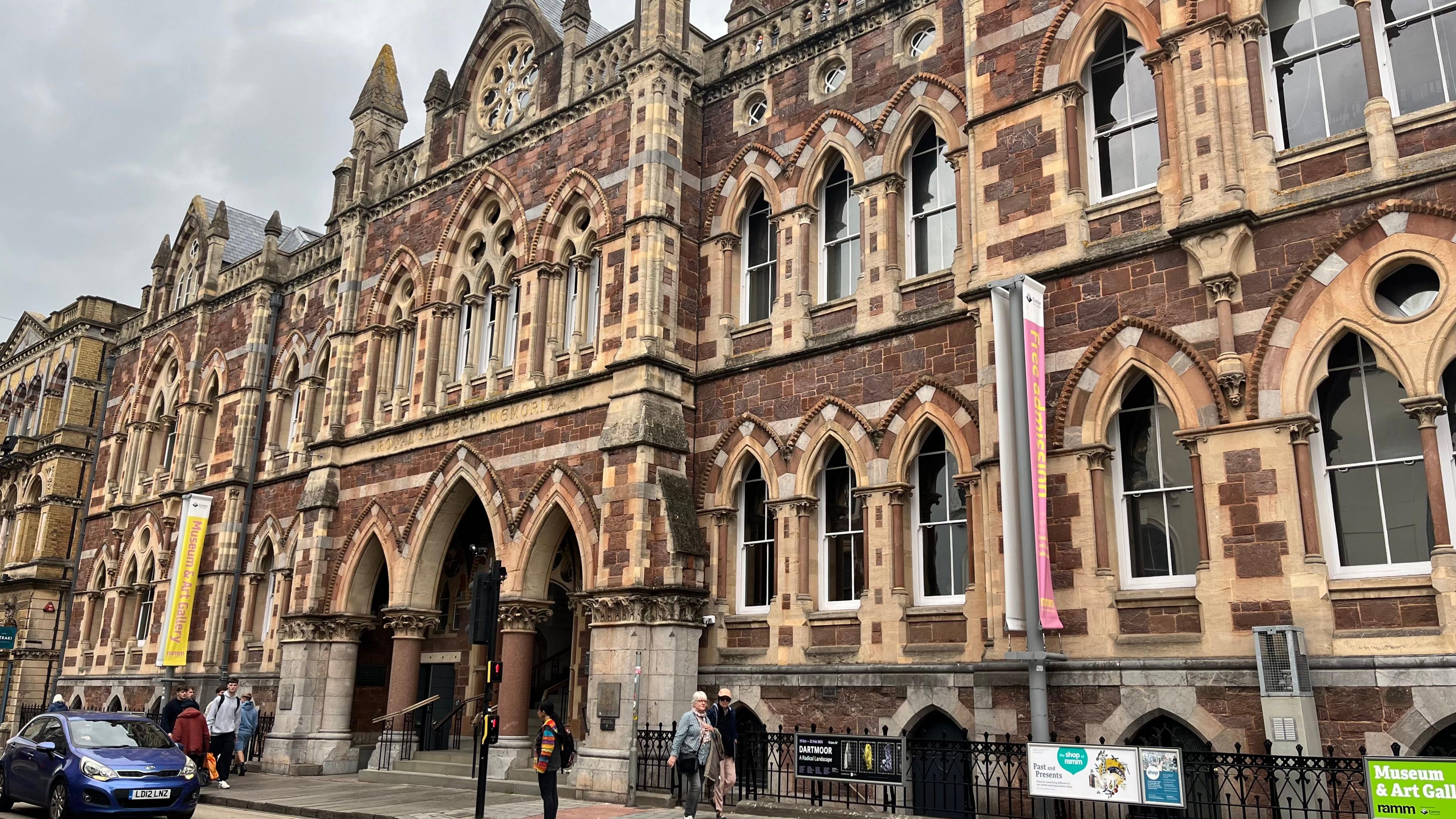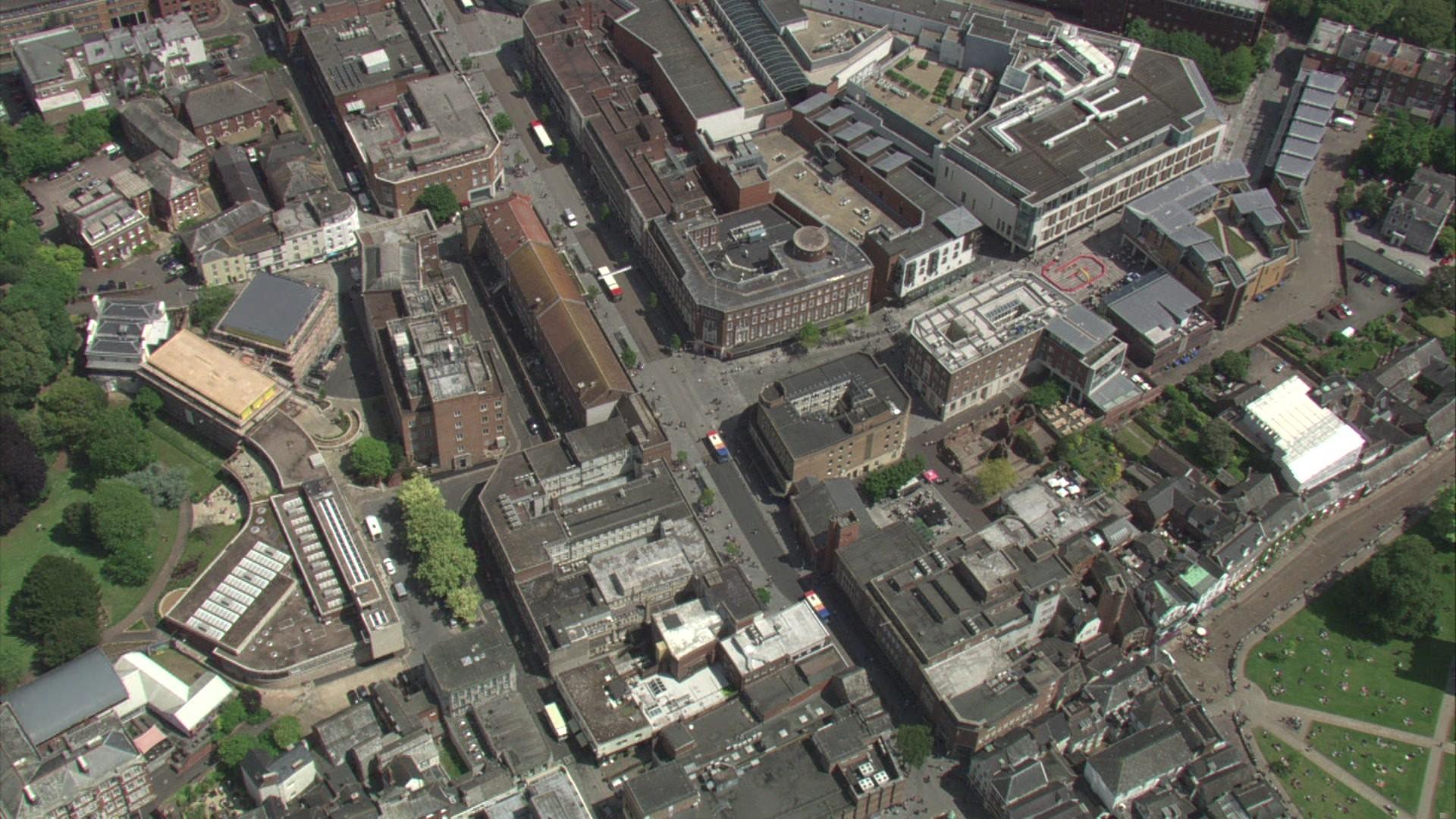Council defends scrapping £7m green energy scheme

The Royal Albert Memorial Museum in Exeter was one of the buildings which would have got a new green heating system
- Published
A council has defended its decision to scrap a £7m project to install renewable energy heating in its two most energy-inefficient buildings.
Exeter City Council said the schemes could not be delivered on time and in budget and abandoned the project - despite reassurance from the contractor that the schemes could be successfully delivered.
Phil Bialyk, leader of the Labour-led council, told the council's executive on Tuesday the council had "done the sensible thing" in avoiding any risk.
The leader of the Green Party on the council has called for an investigation into exactly what has happened and why the council chose to hand back £6.4m of government funding.

Plans included installing green energy heating systems at the Riverside Leisure Centre
Exeter City Council was awarded £6.4m of government money in 2023 to "decarbonise" its two most energy-inefficient buildings, the Royal Albert Memorial Museum and the Riverside Leisure Centre.
The work was to be paid for through the £6.4m grant from the Public Sector Decarbonisation (PSDS) Scheme with an added contribution of about £870,000 from the city council.
Mr Bialyk said: "A lot of hares have been running on this.
"I want to thank the officers involved - there has been due diligence with the council's funds.
"We've done a very sensible thing here. We were looking at the best interest of the ratepayer."
The council claims to want to become net zero by 2030.
Matt Vizard, the cabinet member for climate and ecological change, said the council had made "a financial decision, not a net zero decision".
The executive committee voted unanimously to approve the recommendation not to proceed with the project and to look at further funding opportunities.
Follow BBC Devon on X (formerly Twitter), external, Facebook, external and Instagram, external. Send your story ideas to spotlight@bbc.co.uk, external.
Related internet links
Related stories
- Published25 September 2024

- Published12 January 2024
